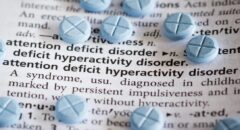
Some people might think that attention deficit hyperactivity disorder (ADHD) only affects children but nothing could be further from the truth. In fact, studies show that approximately 3% of the adult population is affected by the condition. Worse yet, that number typically represents those who have been officially diagnosed. The numbers could be much higher when you account for the adults who are living with the daily issues caused by ADHD. Fortunately, knowing the symptoms to look for can help you to identify if you need to be checked.
10 Common Signs Of ADHD In Adults
1. You’re Easily Distracted
People with ADHD often have trouble focusing, which can affect how well they pay attention during conversations, how well they perform tasks, and whether or not they retain intricate details.
2. You Have Trouble With Relationships
ADHD can come with certain issues such as talking over others in a conversation, not paying attention to others, and getting bored easily. When in a relationship, these can be interpreted as a lack of interest. Unless your partner can navigate these issues, your relationship might not last. These traits can also affect professional and platonic connections.
3. You Can’t Find Motivation
The lack of motivation can mean that you don’t start the tasks you need to. It’s even worse if the projects require hours of focus.
4. You’re Disorganized
When you have ADHD, it can be hard to prioritize your tasks in a logical way or keep track of what you’ve already done. This disorganization can affect how well you do your job or manage your personal goals.
RELATED: Am I Crazy? Signs of Adult ADHD Often Ignored
5. You’re Plagued With Anxiety
Restlessness is a characteristic of ADHD. While some people experience fidgeting, others describe having an internal restlessness that gives them racing thoughts. In either case, it can be accompanied by anxiety.
6. Your Emotions Are All Over The Place
Research shows that those with ADHD can have trouble managing seemingly small frustrations. This can result in rapid shifts in your moods throughout the day.
7. You Lose Track Of Time
Though you may have trouble focusing, you can also have the opposite issue when you have ADHD. Those with the condition may have the ability to pay attention to one task for a long time. Aptly called hyperfocus, the result is that you lose track of time and don’t accomplish the other things on your to-do list.
8. You Always Procrastinate
If you often ignore tasks that seem boring or put off the ones you don’t feel able to handle, you’ll find yourself procrastinating a lot. It doesn’t help that you’re likely to forget many things as well. The end result is poor time management.
9. You’re Impulsive
ADHD can cause poor impulse control so you may interrupt others during conversations, rush through your assigned tasks, and do or say things without thinking of the consequences first.
10. You Have A Negative Self-Image
On top of dealing with all the above-mentioned symptoms, those with ADHD tend to be overly critical of themselves. When this happens, it’s hard to maintain a positive self-image.
RELATED: 9 Signs Of Adult ADHD
Why The Symptoms Differ From Those In Children
The symptoms of ADHD are typically more obvious in children because they haven’t yet learned how to navigate their daily lives with them. Over time, people who have undiagnosed ADHD can develop techniques known as ‘masking’ to function while coping with the condition’s symptoms. When combined with the fact that some issues caused by ADHD can resolve as you get older, it means you might not have all the symptoms that the disorder is known for. Additionally, women might present with different symptoms than men.
Why Black Americans Need To Pay Attention
Studies show that Black children go undiagnosed regularly. When the research was done, it was found that while white children were being diagnosed at a rate of 11.5%, Black children were being diagnosed at a rate of 8.9%. From as early as kindergarten, Black children were 70% less likely to be diagnosed than other ethnicities. Unfortunately, there is rarely any follow-up so these children are never re-assessed.
Without this diagnosis, the typical symptoms of ADHD are usually treated as disciplinary issues and this negatively affects the child’s overall education. While these symptoms can resolve over time, that’s not the case for everyone and quite a few adults struggle with ADHD. The good news is that it’s never too late to receive a diagnosis and start an effective treatment program. Some people will need medication to manage the condition but others can do well with the right coping mechanisms.
ADHD can significantly disrupt your life when you aren’t given the tools to manage it. If you’re having any of the symptoms that are listed here, it’s essential for you to see a doctor as soon as possible.








